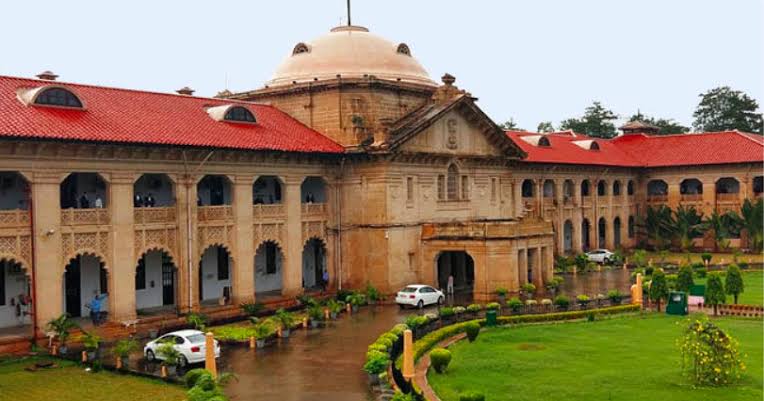The Allahabad High Court has observed that an adult girl above the age of 18 years has the right to live and marry someone of her own will.
The Division Bench of Justice Ashwani Kumar Mishra and Justice Shamim Ahmed passed this order, while hearing a petition filed by Pratiksha Singh And another.
The plea sought quashing of the First Information Report in case under Sections 363 and 366 IPC, Police Station Kandwa, district Chandauli, as per which the daughter of the informant was enticed away by the accused and he apprehended that either she has been sold or killed. The prayer was made to lodge an FIR and proceed with investigation in accordance with law.
The FIR was challenged on the ground that the victim and the second petitioner have fallen in love and have solemnised their marriage and are, therefore, living together. Specific assertion has been made in that regard in the writ petition and a marriage agreement has also been placed before the Court.
The Court noted, “A counter affidavit has been filed by the informant in which the only ground urged to oppose the prayer is that the marriage itself is not legal, since the bridegroom has not completed the age of 21 years at the time of marriage. It is stated that since marriage itself is illegal, therefore, marriage claimed by the petitioner is contrary to law and the FIR ought not be quashed.”
Section 5 (iii) of the Hindu Marriage Act, 1955 provides for the minimum age of bride and bridegroom as 18 years and 21 years, respectively. In the facts of the case on the date of alleged marriage, the victim is shown to be above 18 years and the only ground is that the bridegroom is below 21 years.
In the facts of the case both the petitioners are shown to have married each other out of their own volition and are living together for the last more than two years since their marriage.
“The legality of the marriage is not under challenge before us. Even otherwise, any violation of Section 5 (iii) of the Act would not render the marriage void. Section 11 of the Act provides for void marriages, while Section 12 of the Act provides for voidable marriages.
“While defining void marriages, the legislature has specifically omitted to mention Clause (iii) of Section 5 as one of the grounds for violation of which the marriage itself is rendered void. Similarly, Section 12 also does not specify that any violation of Clause 5 (iii) would render the marriage voidable,” noted the Bench.
The Court said that in such circumstances, the mere fact that the second petitioner was not above 21 years would not render the marriage void.
At best, any violation of Section 5 (iii) would render the person responsible liable for punishment in terms of Section 18 of the Act. However, the marriage itself would not be questionable on such grounds. On the date when the matter is being heard, the second petitioner otherwise is above 21 years of age. Necessary ingredients to attract an offence under Section 363 and 366 would then not be made out, once it is shown that the victim has joined the company of the accused out of her own free will and she has neither been kidnapped nor abducted or enticed to compel into the marriage.
Section 363 also would not be attracted inasmuch as, it merely provides for punishment for kidnapping from lawful guardianship. Kidnapping from lawful guardianship is defined in Section 361 IPC, as per which any person who takes or entices any minor under 16 years of age if a male, or under 18 years of age if a female, only then an offence can be said to have been committed. Here the alleged victim is above 18 years of age, as per her High School Certificate and she has clearly stated in the writ petition that she has gone with the second petitioner out of her own will and has also married the second petitioner.
“The assertion made in that regard has not been denied in the counter affidavit, once that be so, we find that necessary ingredients to invoke the provisions of Section 363 and 366 IPC are clearly found lacking in the facts of the case and the offence, as alleged, is not shown to have been committed. It is otherwise well settled that it is the right of a major to live with any one out of his/her own will.
In the facts of the case, the victim admittedly is above 18 years of age and once she had joined the company of a second petitioner, voluntarily, the offences disclosed in the First Information Report are clearly not shown to have been made out”, the Court observed while allowing the writ petition.
The First Information Report bearing Case under Section 363 and 366 IPC, Police Station Kandwa, District Chandauli, is hereby quashed, the Court ordered.


